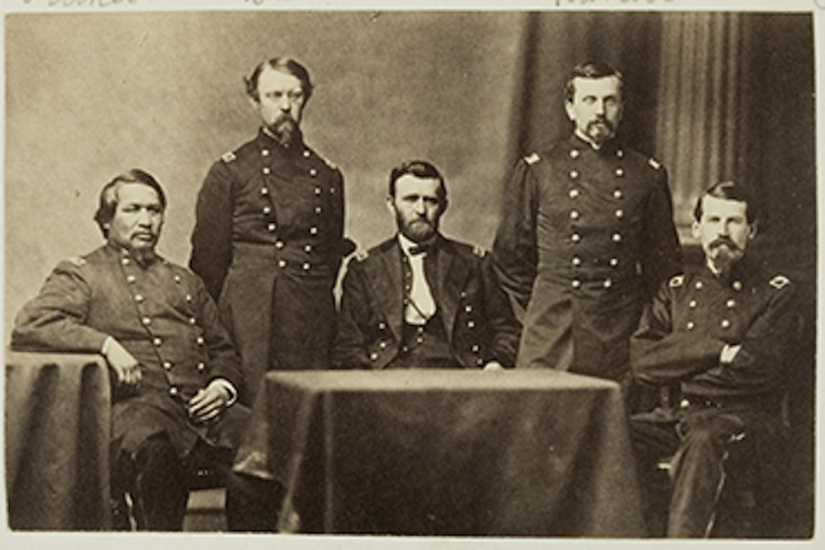As president, Grant made Parker his Commissioner of Indian Affairs, and Parker began working to implement the president’s plans, appointing dozens of army officers to oversee the superintendencies, agencies, and reservations in the West. Grant and Parker were so certain of the wisdom of their policy that they failed to see how many people opposed it. Congressmen, who had previously rewarded their supporters with jobs in the Indian service, resented the fact that Grant had taken away these plum positions. Many Americans, especially in the West, complained that the president sided with the Indians rather than with his own countrymen. Reformers, who wanted the government to impose radical changes on the Indians, doing away with tribal identity and dividing reservations among individual property owners, criticized Grant and Parker for allowing the Indians to make changes at their own pace. Tribes that had not yet been brought onto reservations vowed to fight any attempt by the army to do so. Tribes in the Indian Territory, especially the Cherokee, wanted to remain independent nations.
But no one opposed Grant’s policy as strongly as the Board of Indian Commissioners, a 10-man committee of wealthy Americans that Grant had appointed as part of his new Indian policy. Grant had expected the board to audit the Indian service, but the board demanded instead to run it.
The board wholeheartedly supported the efforts of Congress to overturn Grant’s Indian policy. The first step came in the summer of 1870 when Congress banned active duty military personnel from serving in government posts—primarily, Grant believed, so that Congressmen could appoint their supporters instead. To counteract this move and prevent the Indian service from sliding back into the corruption of political patronage, the president appointed missionaries to run the reservations. Grant was still determined to win American citizenship for every Indian, and he hoped that the missionaries would guide them along the path toward it. But the Board of Indian Commissioners remained just as determined to oppose Grant. William Welsh, the board’s first chairman, believed the president’s policy could be overturned by toppling the “savage” who stood at its center, Ely Parker. Welsh was infuriated that a man like Parker could hold such a high position. He was also appalled that Parker had married a young white woman, Minnie Sackett, and that the couple was the toast of Washington society.
